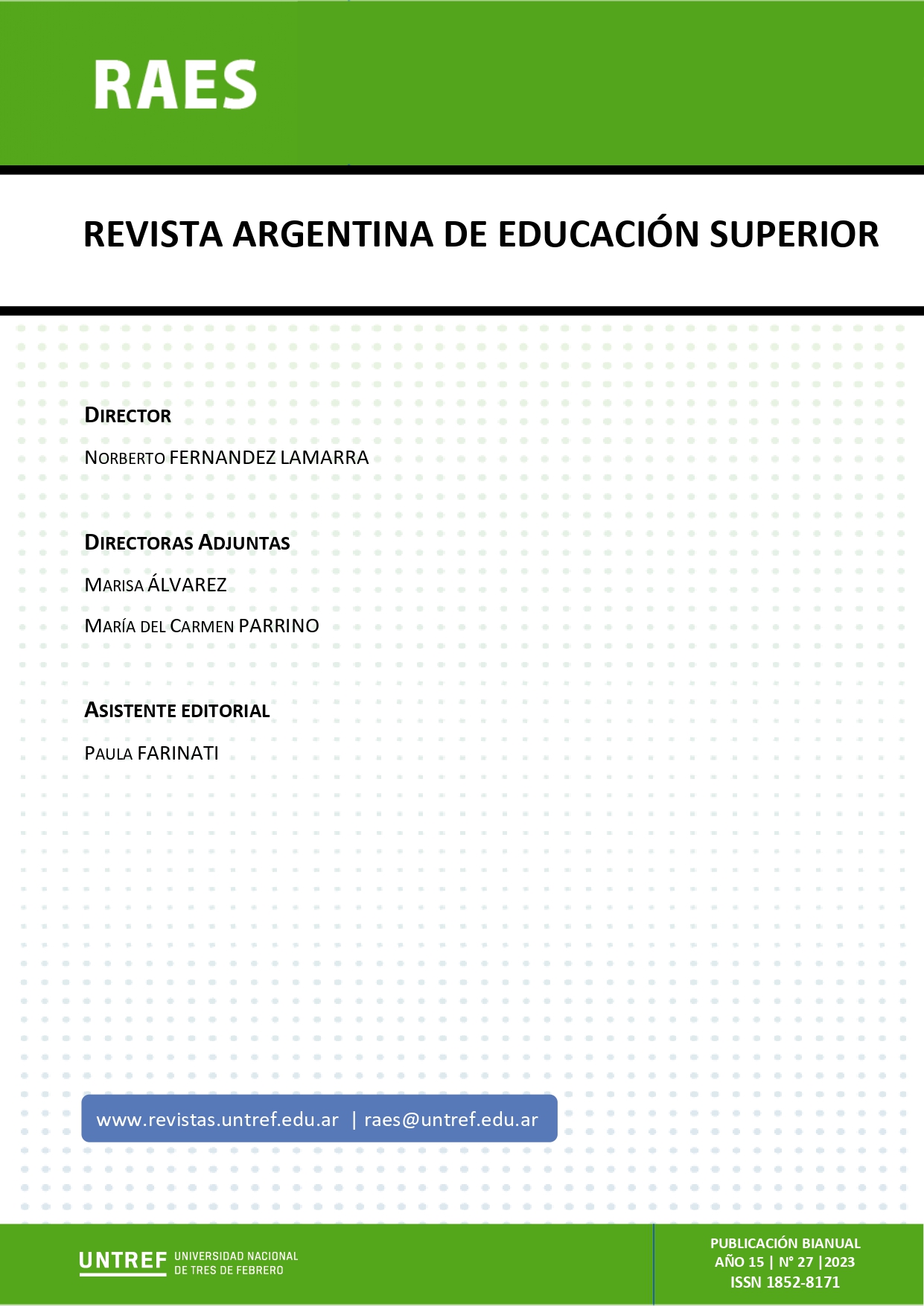Experiencias socio-comunitarias de estudiantes de psicomotricidad en la UNTREF. Articulaciones entre universidad, formación profesional, especificidad disciplinar y actores sociales.
Abstract
Different social groups deploy demands for education and knowledge to universities, which, as producers and transmitters, become permeable or distant to the social needs and problems of each territory and cultural context.
In this article, we describe and analyze how students of a specific major -psychomotricity- at a public university -the National University of Tres de Febrero (UNTREF)-, deploy disciplinary senses "in development" seeking to insert and circulate their own knowledge and perspectives on what it means to work and professionally accompany a specific type of actor: childhood in contexts of "social vulnerability" and their families.
The analysis is based on a qualitative research that included semi-structured interviews and observation of intervention practices of students in "university volunteering" and extension projects. In the formative experiences of students and graduates a historical age intervention focus in the discipline is reconfirmed, childhood and its development, recontextualized in the community environments where psychomotricity is increasingly called upon and identified in its expertise. What is relevant when looking at more structural political, cultural, social, and educational processes is that the disciplinary knowledge of university majors incorporates, in more articulated and grounded ways, the active role of students in their own formation, and prioritize the relationship with the community and territorial actors.
pdf (Español (España)) - Artículo descargado = 252 veces
html (Español (España)) - Artículo descargado = 93 veces




